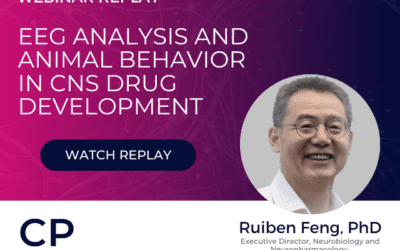Presented by Yuzhou Xu, Senior Director of Biology and Pharmacology at ChemPartner.
Abstract: Discover a groundbreaking webinar delving into the in vitro assays for proteolysis targeting chimera (PROTAC). PROTACs are being developed more and more for many kinds of target proteins, even for “undruggable targets.”
A PROTAC is a heterobifunctional molecule that utilizes the ubiquitin-proteasome system (UPS) to degrade a target protein. The simultaneous binding of the target protein and ligase by the PROTAC induces ubiquitylation of the target protein. Afterward, the target protein is subsequently degraded by the UPS. Then the PROTAC is recycled to target another target protein. This novel, catalytic-type mechanism of action is called “event-driven” pharmacology, which contrasts with “occupancy-driven” pharmacology, whereby the function of a target protein is directly blocked by a small-molecule inhibitor.
The ubiquitin-mediated destruction of cellular proteins plays a crucial part in many cellular functions by altering the cellular protein concentration. The discovery of specific proteins that are ubiquitylated before degradation in the 1970s led to the 2004 Nobel Prize in chemistry.
Since then, with the catalytically “event-driven” pharmacology, the potency of binding affinity to the target protein is no longer the key aspect of a PROTAC. However, more insights and better assays to help the structure-activity relationship (SAR) for PROTACs are needed.





